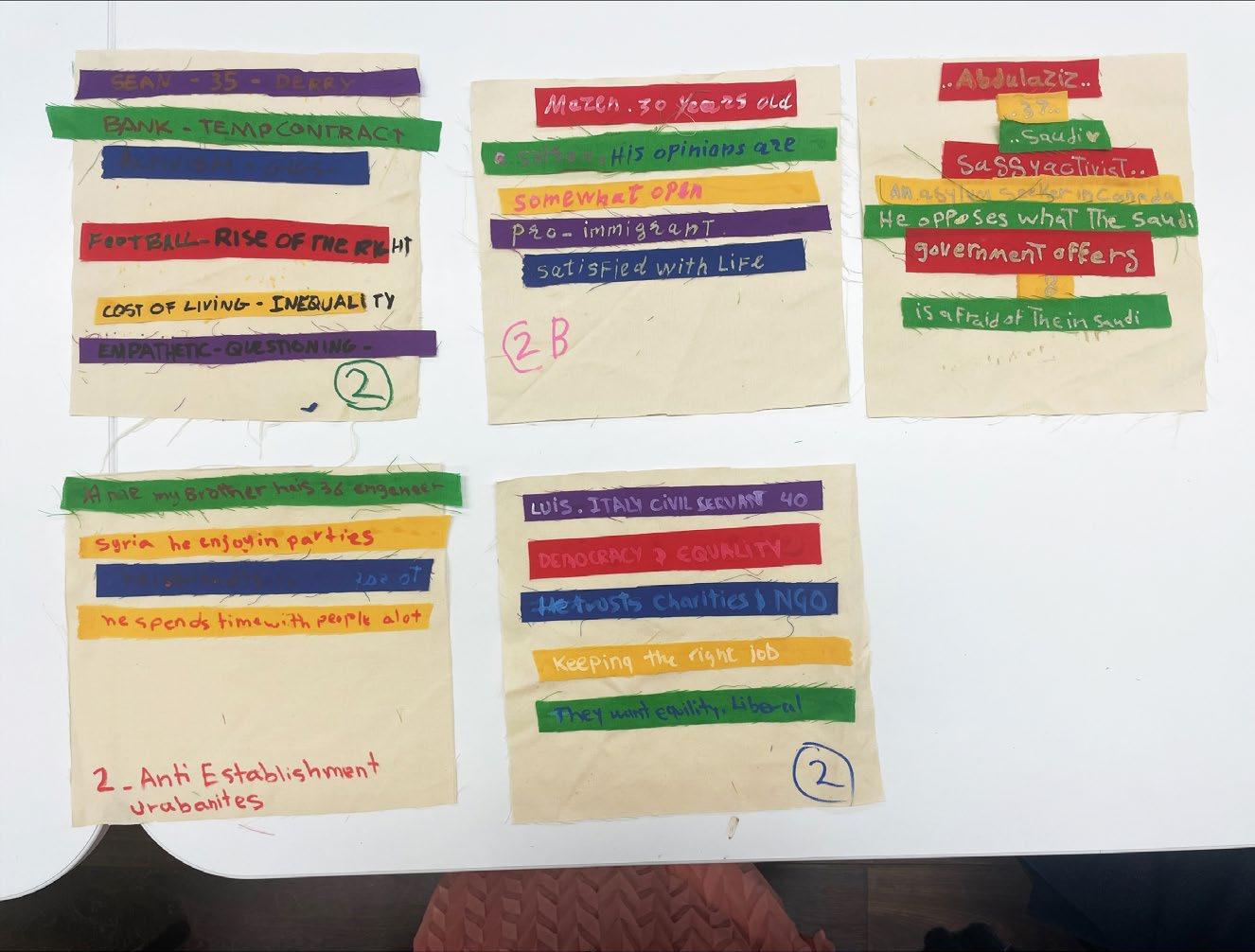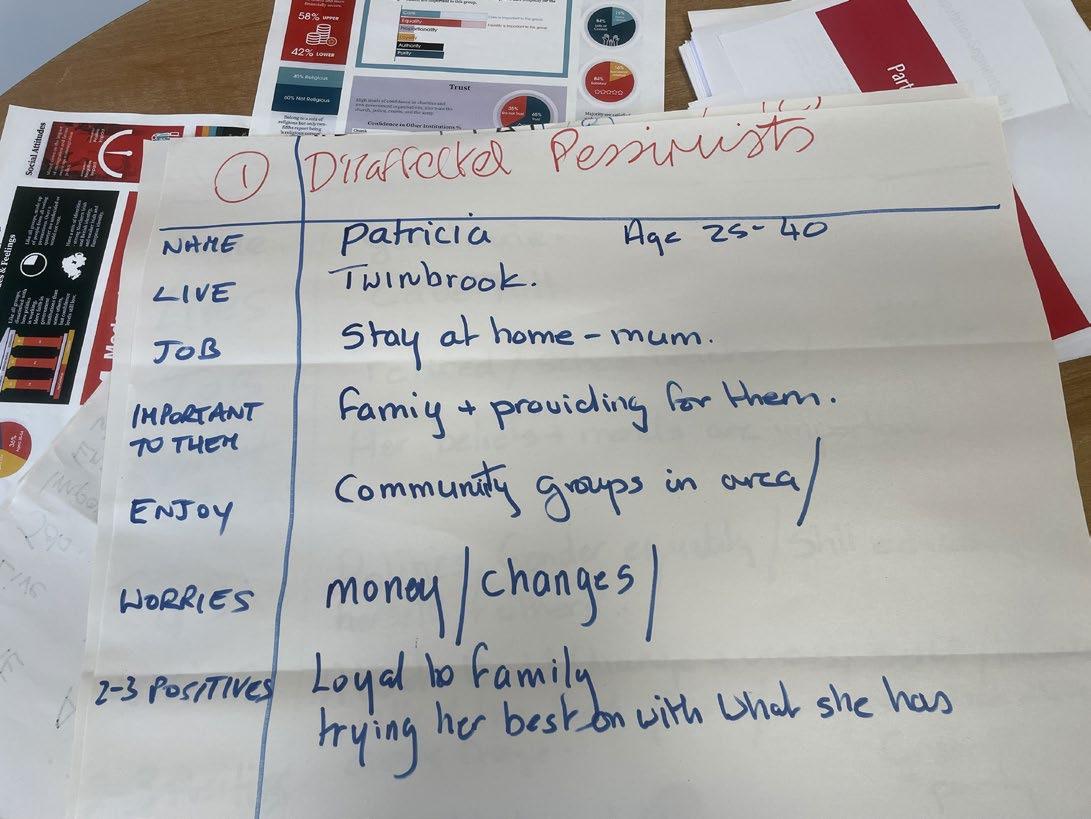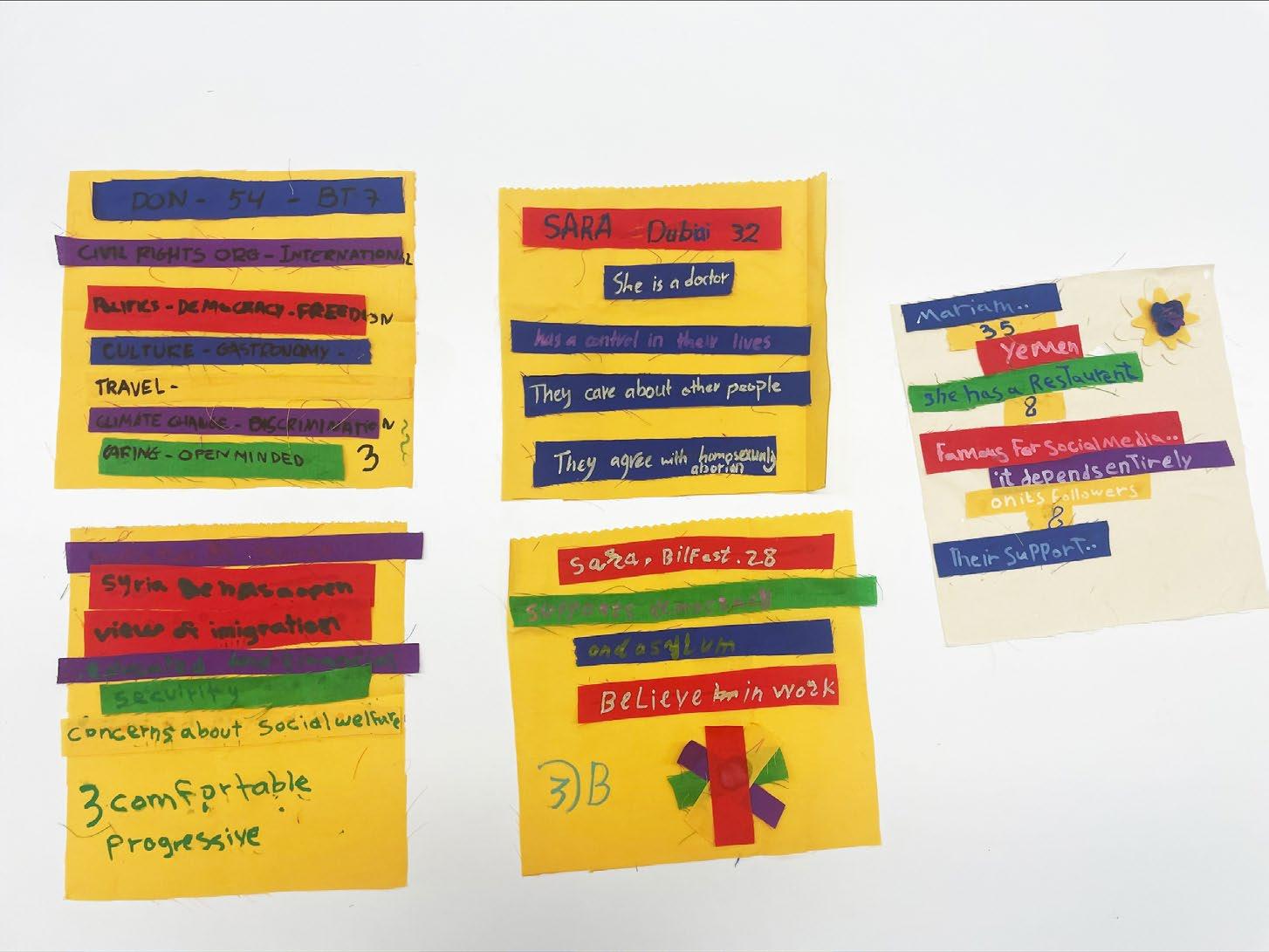The Values Project: Using

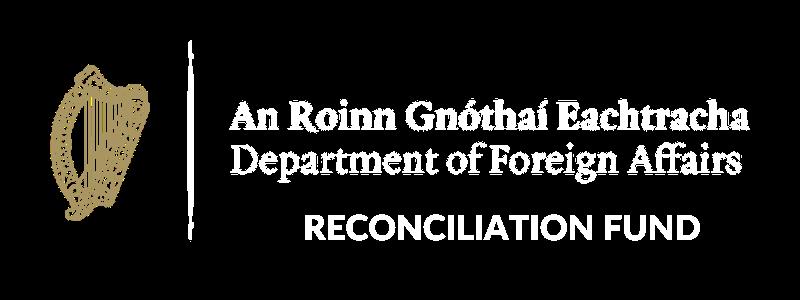



Although Northern Ireland remains a deeply divided society, where tensions can flare up quickly, there has in fact been considerable attitudinal, political and demographic change in the last 25 years.
This shift is not always apparent in the public narrative, which often fails to reflect the plurality of perspectives and identities that exist. Our current public narrative can be both polarised and polarising, which in turn fuels further division.
Cultural, social and political divides and their implications for how we live well together are a global concern, but they have a particular resonance in divided societies like Northern Ireland. With support from the Reconciliation Fund, the Values Project has been exploring how community conversations using new data revealing our shared values and changing attitudes might challenge the simplicity of ‘them and us’ framing and narratives. SCI hopes this project will stimulate different conversations that help us to understand ourselves and others better and to move away from single story narratives.
The Values project brought together new information on values and attitudes in Northern Ireland, it explored narrative strategy and importantly, it directly engaged community leaders and communities around attitudes and values.
SCI has been working in partnership with King’s College London (KCL), to conduct the World Values Survey (WVS) in Northern Ireland for the first time. WVS is a representative comparative social survey, conducted globally every 5 years, that tracks people’s thinking on issues of ethics and morals, trust, fairness, corruption, politics and economics. The current wave, completed in 2022, covers 120 countries, including Britain and Northern Ireland. SCI and KCL have been analysing the data and building segmentation models to provide unique insights into how different groups in the NI population are aligned in terms of their values and attitudes, beyond community background or constitutional position.
Find out more SCI and KCL’s work on the WVS in Northern Ireland:

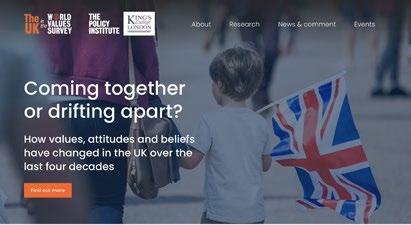
Internationally, SCI has previously used values and narrative-led strategies to enhance understanding between people with different perspectives on challenging social issues, particularly around migration. The approach uses insights into the values that drive people, as opposed to their identity or demographics, to support more effective and less polarized communication (see Tools and Resources for more information). Parable Grassroots Communications, a specialist communications organisation interested in how storytelling can realise social change, also provided expert advice to this current project.
SCI is grateful for the invaluable role played by the community leaders who participated in the project and the people who participated in community dialogues across Northern Ireland:
• Gerard Deane, Holywell Trust (Derry/Londonderry)
• Elaine Forde, The Mac, with support from Raja Obed and Mayte Ruiz (Belfast)
• Susan McCrory, Falls Women’s Centre (Belfast)
• Denzil McDaniel, journalist and commentator (Enniskillen)
• Darren Richardson, Sperrin Cultural Awareness Association NI, now Evolve NI (Magherafelt)
• Conrad Thomas, St Dominic’s Grammar School (Belfast)
Figure 1 – Project Activity
Analysis of WVS findings & development of population segments for Northern Ireland (with KCL)
Communications workshops for community leaders (with Parable) - explore narratives & framing
Facilitated discussions on WVS findings on values & attitudes in NI - views & reactions. Exploring population segments - group exercises to build understanding & empathy
Develop materials –slide deck, group exercises, data packs, feedback forms
c.55 participants in 6 diverse groups – mixed & single gender; nationalist, unionist & mixed community background; asylum seekers & refugees; range of ages; urban & rural
Immediate feedback from community leaders & people taking part in community dialogues; lessons learned workshop with community leaders (with Parable)
Exploring usefulness of the values-led approach; impact on understanding of own & other’s positions; potential future application in peacebuilding
Here is our learning from taking a values-led approach to building understanding and repairing division.

At each community dialogue, the community leaders and SCI presented the WVS findings for Northern Ireland and led a discussion among the group. People reacted to the findings and shared how they resonated or not with their own life experience. The WVS findings illustrate a shift in social attitudes and values in Northern Ireland over time that applies across the traditional Northern Ireland community backgrounds. Using the findings as a basis for discussion enabled common assumptions to be challenged and a reframing of the concept of two communities with opposing views.
The WVS findings also include cross-country analysis, illustrating how values and attitudes in Northern Ireland are very similar to those in GB and other countries. This helped counter perceived ‘Northern Ireland exceptionalism’ and encourage a more outward looking perspective in an international context.
The population segments were determined through statistical modelling that identified people with a similar political mindset in terms of the economy and systems of government. The resulting groups span traditional community designations in Northern Ireland. All too often attitude and opinion surveys in Northern Ireland focus on differences between PUL (Protestant/Unionist/Loyalist) and CNR (Catholic/Nationalist/Republican) communities, reinforcing a sense of ‘them’ and ‘us’, rather than using alternative frames. The segment analysis allowed participants to explore the values and attitudes held by different groups and enabled them to appreciate the common ground across identity groups that we typically see as having little in common. Presenting information in terms of these segments, rather than
the traditional Northern Ireland community designations, helped move conversations away from the typical narrative about ‘them and us’. Participants and facilitators found this refreshing and were also challenged not to default to the ‘two communities’ frame.
Some groups taking part in the exercise found it useful to characterise the segments by creating a fictional person based on the details provided. This helped make the segments real, created insight and empathy, and was an enjoyable way to engage people in thinking deeply about their own and other’s values and attitudes. Feedback showed that it helped people understand their own values and those of others.
The community facilitators found that the values-led approach helped open up conversations on potentially controversial topics. One described the approach as “a noninvasive way to engage people in conversations about quite deep social issues”. Creating a space that feels safe in which to have these discussions is a necessary pre-condition.
Quotes from community dialogue participants:
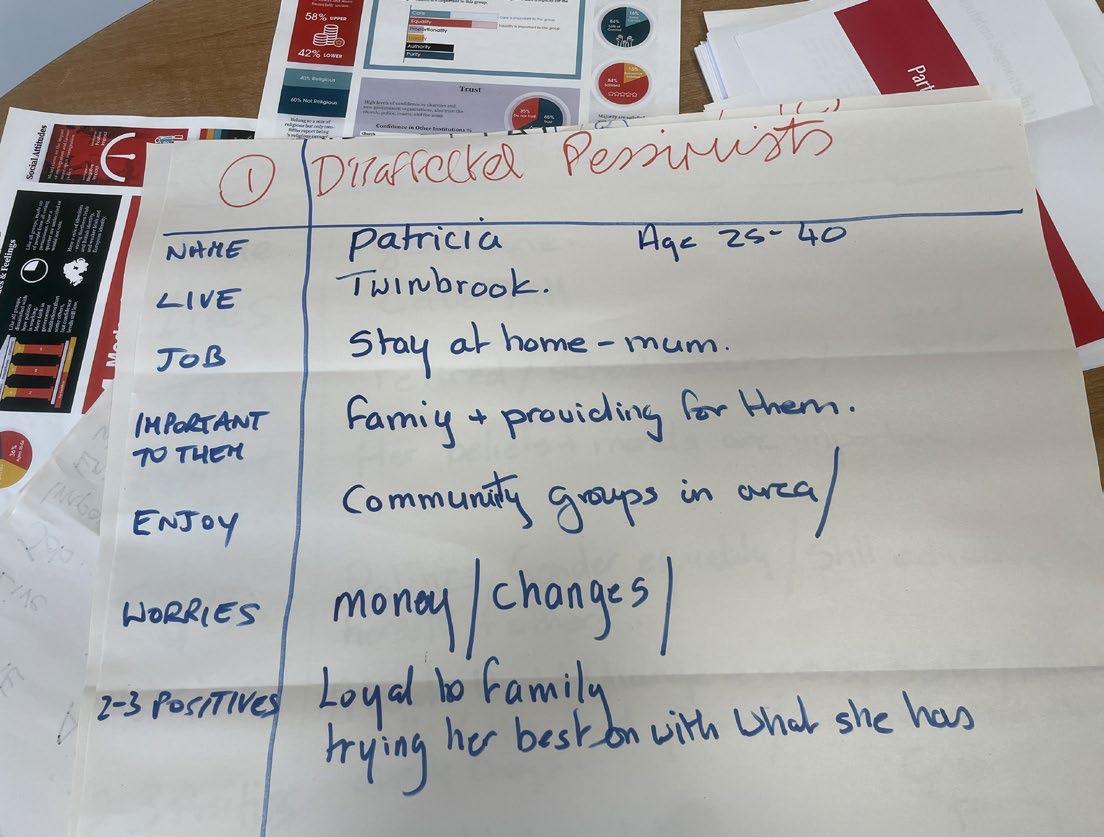
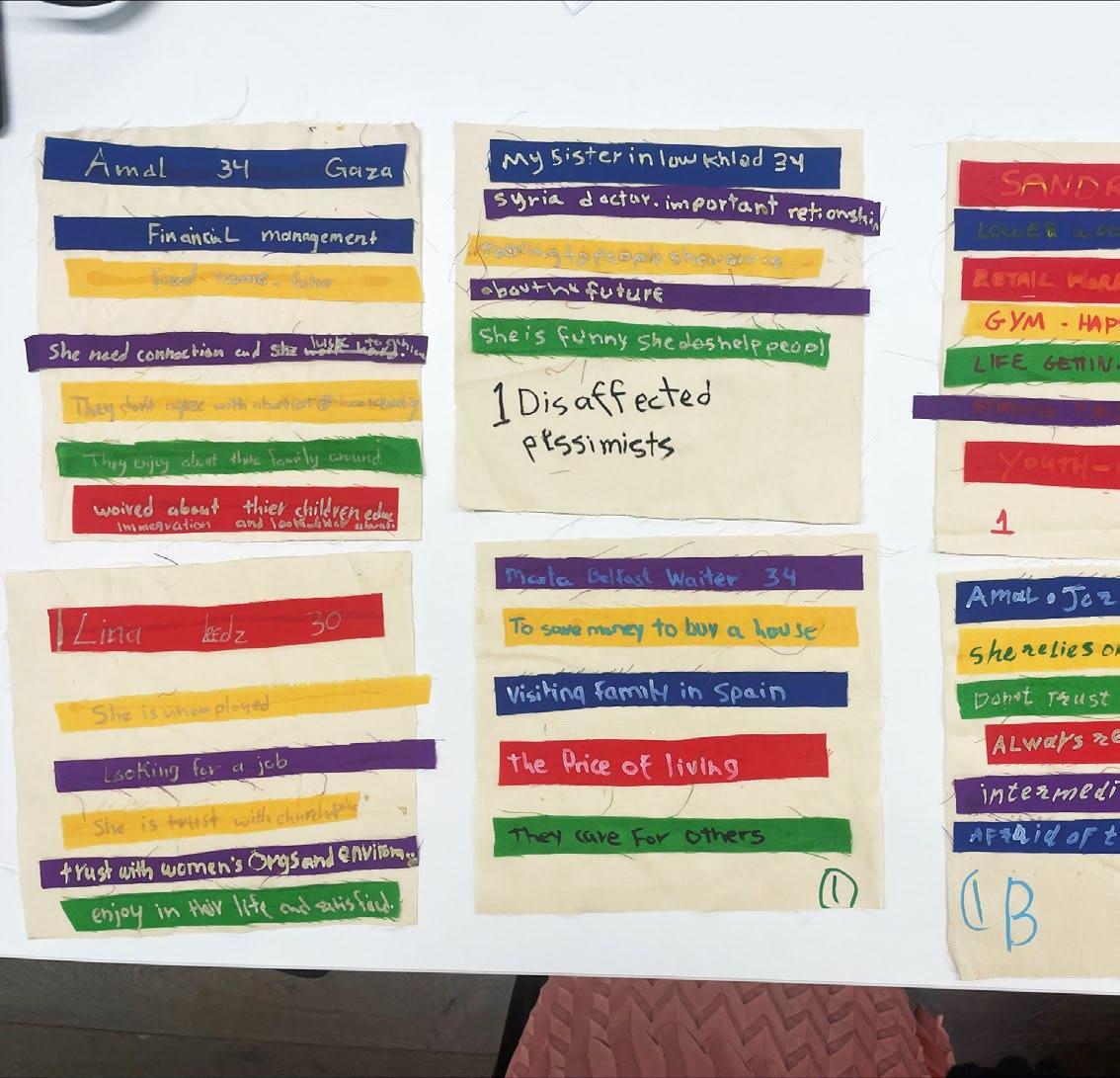
“I learned that I personally was not aware of certain changes that has taken place over the last 20 years or so and has made me think more about differing attitudes.”
“I learned much more about other people’s lived experiences, particularly evangelical unionism and women - how populations can feel left behind.”
“Learned about people’s differences and about views you have in common with people that seem different to youeven learned about values in common that you don’t like about yourself.”
“I learned that everything isn’t black and white and people’s decisions are affected by a number of personal factors.”

Complex data can be used successfully in community conversations
Having a high-quality evidence base provided a solid grounding for the discussions. Community leaders commented on how valuable that was (and could be in future) as a stimulus for community conversations, which often begin with assumptions and perceptions.
The WVS evidence was embraced by a ‘non-expert’ group of people who were being presented with quite complex data and concepts, including time-series and international comparative analysis and population segments. People made sense of the complexity and used the data as a jumping off point for conversations. One community leader described the evidence base as a ‘unique toolkit’ commenting that it opened up discussion and stimulated thinking.
Good preparation, support materials and facilitation are essential to the approach. The dialogues involved co-facilitation between SCI as the ‘outsider’ bringing information and the ‘insider’ who is known and trusted by the group – this approach worked well.
Quotes from community dialogue participants:
“I liked how we got to discuss the statistics and why they might be, as well as voicing my opinion and hearing others.”
“Giving us facts and letting us think about our views”
Conversations about values and attitudes are valuable, and people want to have them

Lesson 3 – Conversations about values and attitudes are valuable, and people want to have them
Across all the communities involved, participants fed back that they appreciated the opportunity to speak, listen, learn and be challenged in a safe space with a trusted facilitator. Community leaders are convinced of the importance of conversations like these for social cohesion and democracy. There is huge value in investing the time needed for people to tell their stories, listen and respect other people’s stories and in time come to understand others and see the commonalities they share. These kinds of conversations happen too infrequently now.
In every case it would have been possible to continue the conversations far beyond the time allotted, and in two cases the participants decided themselves that they wanted to have a second session to enable more in-depth discussion of the material. People need time to work with material on values and attitudes and to reflect deeply and, where there is the capacity to do so, taking several sessions is beneficial.
“I liked the diversity of experience and opinions during discussions. Space to listen and be heard.”
“Fantastic session, open and honest conversation. Thought provoking and challenging (in a good way!)”
“I had a chance to have a view on things. Most people had the same issues etc. Lifted my confidence to speak.”
“Might change my mindset but wouldn’t apply to wider community - they would need a lot more talking to counter lost pride, disengagement, deprivation. Communication with communities has been neglected.”
“I still find open discussion challenging - we have been used to not talking openly and honestly.”

New voices were heard through this project and people not previously involved in reconciliation work were engaged. The community leaders observed a need to broaden the audiences that are brought into these conversations, going beyond those already convinced of their importance to include people who do not normally see themselves as being involved in peace building. Not naming the exercises as ‘reconciliation’ may have encouraged this as the term could put some people off or create certain expectations.
One dialogue involved Middle-Eastern women with experience of the asylum system who have come together through a creative learning programme. The values-led approach allowed this group to explore the differences and similarities between their attitudes and those of the Northern Ireland community. They had not previously been involved in conversations about reconciliation in Northern Ireland and reported that their involvement made them feel invested in and gave them new insights into people’s values. The values-based approach could be a valuable tool for integration if properly resourced – in this case one of the group members provided translation support.
Quotes from community dialogue participants:
“Liked
to have opportunity to share our views and be part of this community.”
“Gave us insight into the Northern Ireland communityhow they think, how many hold different views. This is hard to learn naturally so the workshop is very welcome.”
“Living in a hotel - can’t form an opinion or learn about the community from there.”
In deeply divided societies, narratives have fuelled conflict and division as they shape how we understand ourselves and others. In highly polarised societies, a small number of narratives tend to dominate. Through this project, we dipped our toe in the water around the application of narrative strategies that have rarely been used in Northern Ireland – namely population segments and narrative change methods. The work tested some elements of narrative enrichment (see Tools and Resources for more information), and it supported participants to think more deeply about a society where many complex, diverse narratives are encouraged to thrive together. The work started to challenge the view around the existence of a small number of dominant narratives.
More needs to be done in Northern Ireland around the important role that narrative strategies can play to build peace. Scope exists to further develop the approach as part of the tapestry of peace building work in Northern Ireland, to engage wider audiences and to help shape the kind of narrative change work that needs to be done in the future.
Lessons can be drawn from other places that have consciously sought to understand more fully the role that narratives can play to either cement division or encourage peace.
Quotes from community dialogue participants:
“I feel conversations around values and attitudes are important to unwrap how we feel about the past and how we see our future as individuals and as a society.”
“People are ready and willing to have new conversations. Constantly harking back to how it was is boring, we have an opportunity for a new discussion.”
“It
could help us progress to a place of tolerance and acceptance rather than deep political divides.”
To support further development of the approaches we tested through the Values Project, we have compiled some suggestions on how to approach conversations with people from the five population segments, taking account of their values and attitudes. Links are also provided to further reading and resources on narratives and framing, narrative enrichment in divided societies and narrative change. We hope that this will support activist leaders with an interest in learning more about how communications tools and key messages about values can guide and inform their work on repairing division and building mutual understanding in Northern Ireland.
Messaging Guide for each Population Segment
Financially insecure, let down by the system (government and the economy), low trust in institutions and wary of others
Key values & concerns to appeal to:
Useful messages & narratives –try to use:
• Fairness – getting a fair share of society’s resources
• Self-reliance – not relying on government for support
• Future security - living with financial insecurity & concerned for the future wellbeing of their family
• Wanting the best for your family/kid’s future – what society do you want for them?
• Life is unfair for others too, many are in the same boat - working hard but not getting results
• If we work together it could make a difference – a better life for others also means a better life for your family
Unhelpful messages & narratives –try to avoid:
Trusted people and institutions – useful messengers
• Avoid labelling and writing off their views – explore the underlying thinking behind them e.g. support for authoritarian leadership, concerns over immigration
• Low levels of confidence generally but some faith in the army, police, charities, women’s and environmental organisations
• Source news from social media & distrust the press
• Look to figures providing local family services & actively using social media (e.g. youth, family support & community development workers)
Dissatisfied with the economy and politics, sceptical about authority and public institutions, socially liberal
Key values & concerns:
• Sharing society’s resources - government/society should take steps to ensure fair access to resources for all
• Individual freedoms – people have rights to personal, social & democratic freedom
• Future security - living with financial insecurity
Helpful messages & narratives –try to use:
Unhelpful messages & narratives –try to avoid:
Trusted people and institutions – useful messengers
• We deserve better - people have a right to decent lives in healthy, well-functioning communities
• Fairness for all - more equal societies are fairer societies
• Solidarity – we are better when we work together, if we stick together we can change things
• Avoid negative labelling of others and generalising of their views as ‘hardline’
• High confidence in charities & NGOs while more sceptical about traditional authorities (church, courts, army, police)
• Look to more politically focused organisations e.g. activist groups, trades unions
Financially secure, compassionate and trusting of others, socially liberal, confident in institutions but dissatisfied with politics in practice
Key values & concerns:
• Sharing society’s resources - government/society should take steps to ensure fair access to resources for all
• Democratic & civic responsibility - people have a duty to participate in democracy & try to make society better
• Individual freedoms – people have the right to personal & social freedom including freedom of movement
• Empathy – seeking to alleviate the suffering of others, locally and internationally
Useful messages & narratives –try to use:
Unhelpful messages & narratives –try to avoid:
Trusted people and institutions – useful messengers
• Rights & freedoms – people have a right to create their own opportunities & seek to make their lives better
• Empathy – we have to look after each other, people shouldn’t be left to struggle if we can help
• Power of civic/political structures – getting involved in civic activity can create positive change, we have a powerful voice to influence what happens in society
• Avoid focus on government to resolve all, creating passivity
• Unhelpful to highlight this segment’s relative material comfort / sympathy over lived experience
• High trust in new people & high levels of institutional trust particularly in charities, women’s and environmental organisations
• Look to progressive media outlets/journalists, churches, academics & other experts, local sports people/artists, charities
Key values & concerns:
Hold more traditionally values, quite religious, confident in authorities like the church
• Loyalty & traditional values – important to be proud of one’s country / community & to maintain traditional values
• Maintaining order - society should be well organised & traditional authorities (e.g. church, army) have a role to play in maintaining order
Useful messages & narratives –try to use:
Unhelpful messages & narratives –try to avoid:
Trusted people and institutions – useful messengers
• Creating communities we can be proud of – everyone living in our communities should have the opportunity to make them better places to live - inclusive & cohesive places are orderly & safe places that we can be proud of
• Tradition of welcome – our society has always been accepting of others, treating them as we would hope to be treated ourselves
• Avoid highlighting reduced participation in organised religion - focus on positive aspects of traditional religious values like community, care for others, family
• Confidence in NGOs & traditional sources of authority – in particular the church
• Look to leaders in church and local communities
Key values & concerns:
Financially secure, self-reliant, pro-competition
• Individual freedoms – people should have personal, social & democratic freedom
• Free economy - people should be free to make their own successes, with a very limited role for government
• Loyalty & tradition – very important to be proud of one’s country / community & to maintain traditional religious values
• Maintaining order - society should be well organised
Useful messages & narratives –try to use:
• Providing opportunities – everyone should have the chance to improve their conditions in life as they see fit
• Creating communities we are proud of – the people living & working in our communities should work together to make them good places to live. Inclusive & cohesive communities are orderly & safe places that we can be proud of
• Tradition of leadership – our country has always set an example to others by upholding individual freedoms – we continue to lead the way by supporting people to have the same opportunities we would seek to have
Unhelpful messages & narratives –try to avoid:
Trusted people and institutions – useful messengers
• Avoid evoking the past as a ‘golden era’ that has been lost – focus on the positive values that can serve communities today
• Unhelpful to seek entirely state-led solutions, explore solutions based on individual agency
• Moderate levels of confidence in army, police, courts & NGOs
• Look to professionals / experts (e.g. leaders in business, economy, law, medicine, science & agriculture) & to church leaders
SCI has collated a range of resources here on narrative change including links to guides and case studies developed by international partners: https://www.socialchangeinitiative.com/narrative-change
Find out more Examples of SCI’s work on attitudes to migration and narrative change:
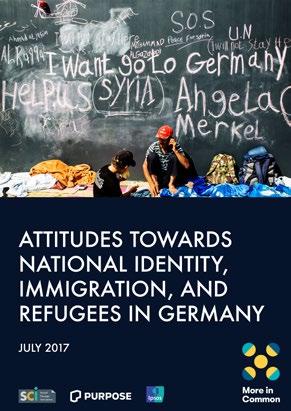
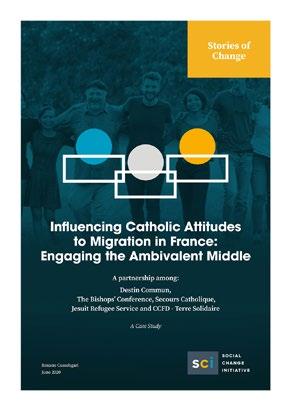
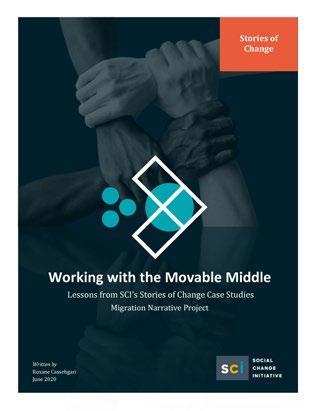
The Institute for Integrated Transitions (IFIT) has produced a range of resources to support more constructive dialogue in contested societies. Its Toolkit for Constructive Dialogue in Polarised Contexts promotes ‘Narrative Enrichment’ which aims not “…to generate consensus or agreement around a given topic. Instead, it promotes viewpoint plurality – the idea that we can and should talk with those whose views are different to our own.”
https://ifit-transitions.org/narrative-peacebuilding-hub/ https://ifit-transitions.org/video-page-inclusive-narratives/
The Council for Curriculum, Examinations and Assessment in NI (CCEA) has produced guidance for schools/teachers on discussing controversial issues with students: https://ccea.org.uk/downloads/docs/ccea-asset/Curriculum/Teaching%20Controversial%20 Issues.pdf
In their 2021 research report, Rice, C., Stanton, E. and Taylor, M. investigate how peacebuilders in Northern Ireland use communications to build trust and present a toolkit explaining their strategies: https://pure.coventry.ac.uk/ws/portalfiles/portal/54825349/Binder7.pdf
The Hope & Courage Collective has produced guides on tackling extremism and hatred in Ireland: https://hopeandcourage.ie/category/guides/
Sheila McKechnie Foundation’s Changemakers’ Toolkit includes a module on communicating for change: https://freecampaigntools.smk.org.uk
The WVS findings indicate a shift in social attitudes and values among the population in Northern Ireland and challenge some of our long-held perceptions.
• Social attitudes have changed considerably, with the Northern Ireland public - particularly younger generations - having become much more open on key social issues like abortion, divorce, homosexuality and euthanasia. Internationally, the UK as a whole is among the most socially liberal nations.
• We have become more comfortable with difference, with growing acceptance of people that would have been historically marginalised. For instance, levels of homophobia and xenophobia, assessed in terms of those we would be comfortable having as neighbours, have decreased.
• There is greater openness to workers from abroad, even when jobs are scarce, and support among many for more open immigration policies. Though a greater share of the Northern Ireland population supports stricter limits on immigration than in other UK nations.
• Despite our history of division, the survey finds limited evidence of strong affective polarisation (i.e. strong negative feelings about the ‘opposing’ political party or group).
• While the Northern Ireland public support democracy as a political system and are interested in politics, they are highly dissatisfied with the way politics is working in practice –much more so than in many western European countries including GB. Confidence in government institutions and the press are also at worryingly low levels in Northern Ireland. People have much higher levels of confidence in civil society organisations such as universities, women’s organisations, NGOs, trade unions and churches.
Looking to the future, although the WVS findings for Northern Ireland raise several concerns, they also suggest ways forward that build on our shared values. More common ground exists across and between groups, presenting scope for values-based conversations that focus less on religion and identity politics and acknowledge the plurality of views that exists. Civil society institutions, which enjoy good levels of public confidence, could take a more leading role in building inclusive civic engagement and encouraging more participative democracy.
Compared to the other segments, people in this group are more financially insecure and worried about their own and their children’s future. They have less trust in institutions and the economy and are the most likely to support authoritarian systems of government. They are the most wary of new people and are a little less socially liberal than others. Immigration is more of a concern for them. This is the youngest group, predominantly female, and least likely to have a university degree.
People in this group are dissatisfied with the current economic and political system and support measures to redistribute wealth. They think hard work isn’t rewarded - success comes from luck and connections – and are worried about keeping or finding work. This group is more sceptical than others about traditional sources of authority like the church, courts, army, police. They are quite socially liberal and more supportive of open immigration. This group is relatively young, more female than male and the most likely to live in an urban area.
Democracy and human rights is a high priority for this group and they are most likely to believe that the government should make sure everyone is provided for. People in this group are politically confident, being more likely to know who they would vote for and to encourage others to vote. They are more trusting of new people, more socially liberal than average and in favour of more open immigration policy. Compared with the other groups, this segment is well off and well educated, but they are less likely to be religious. This is the oldest group and predominantly male.
Compared with the other segments, people in this group are the most likely to say they are religious and their views on social issues are somewhat more traditional. They have more confidence than others in the church and in government institutions. They tend to think individuals should provide for themselves and are somewhat supportive of more authoritarian forms of government, but they hold less strong views on these issues than others. Although they are among the less well-off, people in this group are less worried than others about their future. This is an older group, with slightly more women than men.
People in this segment are the most likely to think individuals should provide for themselves, market competition is good and hard work leads to success. They are more trusting of new people and hold average (quite liberal) views on social issues. They are slightly more negative than positive about the impact of immigration, but they are equally likely to favour open immigration policy as they are to favour stricter controls. This group is among the better off and quite likely to be university educated. They are relatively older and have as many men as women. This is the only group with more people living in rural areas than urban.
Choose 1 of the segments and use the information provided to turn it into a person:
• What’s their name?
• Where do they live?
• What job do they do?
• What’s important to them?
• What do they enjoy?
• What worries them?
• Name 2-3 positive things about them?
